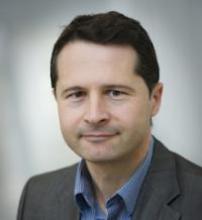
Link adaptation is the ability of a communication system to change its transmission parameters in an effort to track channel conditions. This adaptation usually relies on some sort of coordination between transmit and receive ends to be able to follow the channel changes. In particular, the transmit side needs to learn somehow the channel state information (CSI) to drive the corresponding link adaptation scheme. There are many practical cases which pose important challenges for this adaptation, though; for example, mobile satellite communications operate with a large round trip time, which causes the CSI reported back to the transmit side from the receive end to be outdated when the terminal speed is significant. Another scenario of interest is the underwater acoustic communication, where the slow propagation of acoustic waves together with the time-varying nature of the channel, even for static terminals, can lead to inaccurate CSI. Finally, millimeter wave communications, with high sensitivity to blockages and very high operating frequencies, have to deal also with potential innacuracies in the CSI. This presentation is intended to offer a comprehensive view of adaptation schemes which can work in scenarios without reliable CSI; together with some novel schemes developed by the authors, others already in use by the industry will be presented, all under a common optimization framework.
Carlos Mosquera is currently Professor at the Signal Theory and Communications Department, University of Vigo. He received the M.Sc. degree in Electrical Engineering from Stanford University, Stanford, CA, in 1994, and the Ph.D. degree in Telecommunications Engineering from University of Vigo, Vigo, Spain, in 1998. He held visiting positions with the European Space Agency (1999), the University of New Mexico (2007), and the University of York (2013). He holds different patents in collaboration with industry, and has coauthored more than 100 conference and journal papers, and two books. He has co-organized several international conferences on communications, and is a reviewer for different European research agencies. He is member of the Satellite Network of Experts, funded by the European Space Agency, for which he has been involved in different research projects. In the field of Satellite Communications he was co-recipient of the best professional paper award at the 2012 AIAA International Communications Satellite Systems Conference and the best paper award at the 2014 7th Advanced Satellite Multimedia Systems Conference and 13th Signal Processing for Space Communications Workshop. He is currently Scientific Advisor at the Galician Research and Development Center for Advanced Telecommunications (Gradiant).




